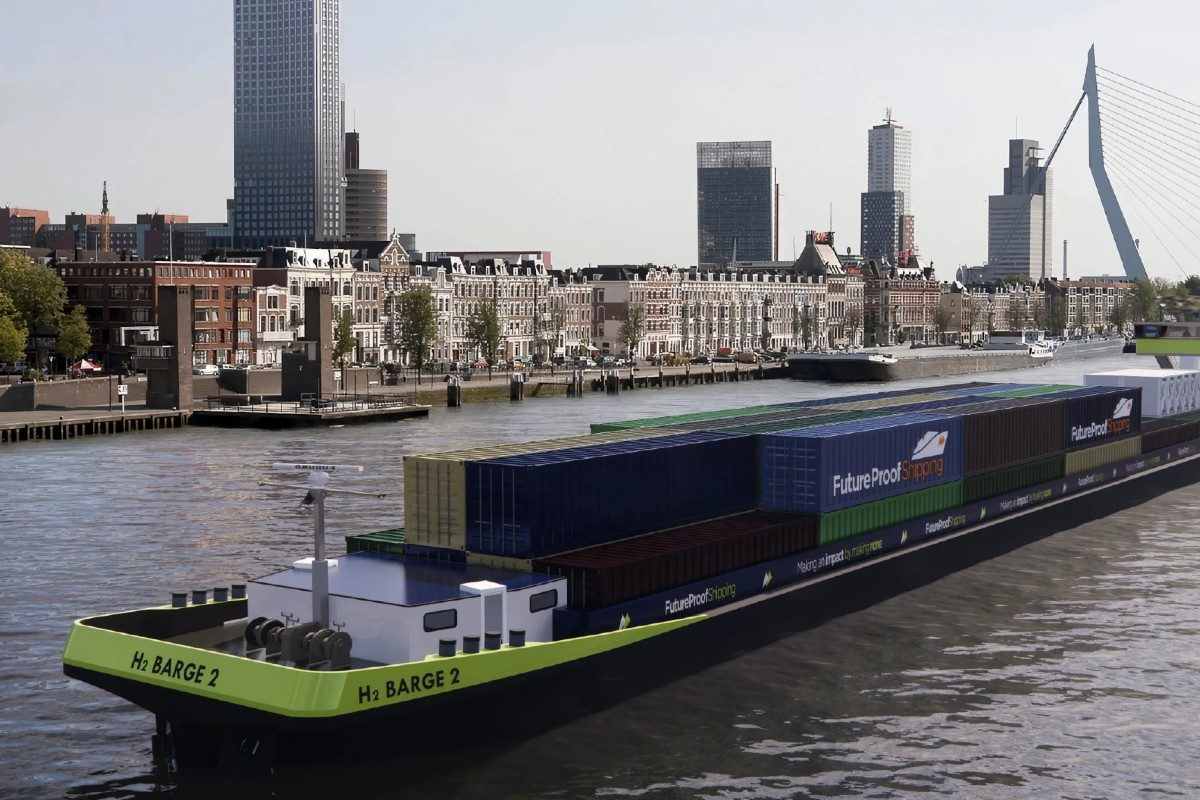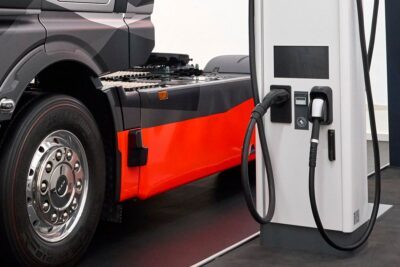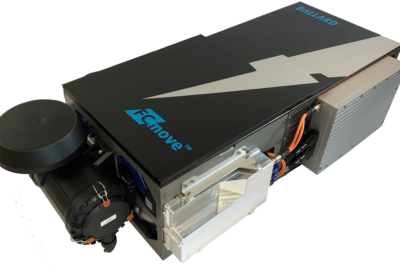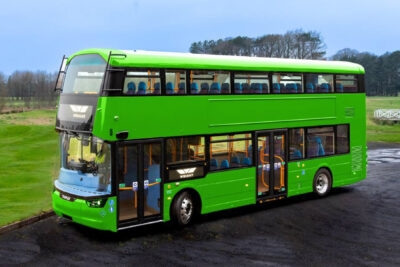Consortium puts hydrogen cargo ship on the Rhine
The hydrogen freighter is the result of several initiatives. The H2 Barge 2 is the first demonstrator for the EU Flagships project. For the ZEM Ports NS (“Zero Emission Ports North Sea”) project consortium, which is also involved, it is the second hydrogen vessel. The 110-metre-long and eleven-metre-wide ship was built in 1993 and operated under the names Fenny 1 and FPS Waal before its conversion. Last year, it was given a hydrogen-fuelled propulsion system at the Holland Shipyards Group (HSG) shipyard in Werkendam. Specifically, six 200 kW FC Wave fuel cells from Ballard Power Systems were installed. The total output thus amounts to 1.2 MW. The partners have not provided any details about the battery or the electric motors.
The H2 Barge 2 will save up to 3,000 tonnes of CO2 per year during its journeys on the Rhine. Its shuttle route stretches from Rotterdam in the Netherlands to Duisburg in Germany. “We’ve been working hard for several years to get to this point,” says Flagships Project Coordinator and Senior Scientist at VTT, Jyrki Mikkola. “Having the first demonstrator on the Rhine is truly a great achievement by Future Proof Shipping and the rest of the partners. The aim of the Flagships project is to take zero-emission waterborne transport to an entirely new level. Now we’re one important step closer to reaching our goal.”
The shipping company Future Proof Shipping (FPS) played a leading role in the project. The Dutch company is one of the most ambitious players in hydrogen shipping and is currently converting a fleet of ten inland and short-sea vessels to hydrogen propulsion. “This is another proud moment for us, it proves moving cargo with zero emissions and zero impact is not only possible, it’s scalable, too. (…) This vessel now sets the standard for inland shipping and beyond,” says Richard Klatten, CEO of Future Proof Shipping.
In addition to FPS, eleven other partners are involved in the Flagships consortium: Norled, SEAM and Maritime CleanTech from Norway, CFT, Sogestion, Sogestran and Persee from France, ABB Marine & Ports and VTT from Finland, Ballard Power Systems Europe from Denmark and LMG Marin based in Norway and France. A second demonstration vessel, the Zulu 06, will be deployed in Paris later this year.
Meanwhile, the H2 Barge 2 conversion was subsidised by the Interreg programme for the North Sea region, the Fuel Cells and Hydrogen Joint Undertaking (FCH JU) programme and the Netherlands Enterprise Agency (RVO).
The project consortium ZEM Ports NS, which is also involved, launched a hydrogen-powered inland container ship in May 2023 – the H2 Barge 1. The Dutch shipping company Future Proof Shipping was also in charge of this project. The H2 barge is part of the aforementioned fleet of ten vessels that the Dutch want to convert. ZEM Ports NS comprises seven organisations based in Denmark, Sweden, Belgium, the Netherlands and the United Kingdom. The project promotes the use of zero-emission fuels in Nordic ports and the maritime sector, focusing on the role of ports at the interface between zero-emission ships and port infrastructure.





0 Comments